While the massacre of Sinjar’s Yazidi community has often been blamed on Sunni Arab collusion with ISIS, evidence keeps mounting that Kurdish leaders played a big part in setting up the atrocity in order to advance their territorial ambitions in northern Iraq.
The Cradle’s Iraq Correspondent
After the brutal August 2014 ISIS attack on the Yazidi community in northern Iraq, a narrative quickly emerged blaming Sinjar’s Sunni Arabs for supporting the genocide.
Yet a deeper delve into this harrowing episode uncovers a much darker reality — one that implicates Iraqi Kurdish politician Masoud Barzani and the leadership of the Kurdistan Democratic Party (KDP) in a sinister collaboration with ISIS.
Yazidi massacre blame game
One of the massacres took place in the small village of Kocho on 15 August, which saw hundreds of women and children enslaved and their men executed. “All the Arabs around us were against us, with the terrorists of Daesh [an Arabic acronym for ISIS],” one male survivor was quoted as saying, pointing the finger at the Sunni Arabs of Sinjar.
In August 2016, Yazidi member of the Iraqi parliament Vian Dakhil claimed that around 1,000 foreign ISIS fighters invaded Sinjar, “But tens of thousands flocked to support them. Those tens of thousands were our neighbors.”
However, several Sunni Arab men from Sinjar spoke with The Cradle to challenge this narrative. They claim they were not willing executioners of their Yazidi neighbors, with whom they had lived peacefully for generations.
“Terrorism represents no tribe, no group, they represent themselves. If a family member becomes a terrorist or ISIS member, this does not mean his brother accepts it. But they could not resist it, or they would be killed by other ISIS members. Everybody surrendered under the gun.”
As rural farmers and sheep herders, they had little power to stop the ISIS massacres. Some individual Sunni Arabs did join ISIS when the group invaded Sinjar, but this was a relatively small number and joining ISIS was largely opposed by the Arab community, they say. As one of the men explains:
“Terrorism represents no tribe, no group, they represent themselves. If a family member becomes a terrorist or ISIS member, this does not mean his brother accepts it. But they could not resist it, or they would be killed by other ISIS members. Everybody surrendered under the gun.”
In fact, the grip of ISIS extended to the Sunni Arab populace in Sinjar and Mosul alike, leading to the execution of local law enforcement and security personnel as the terrorist group gained control over these regions.
One Sunni Arab informs The Cradle that ISIS executed 19 people from his village in 2014, including 11 members of his own family.
A report by the UN Mission to Iraq (UNAMI) corroborates the claim that ISIS also targeted Sunni Arabs, and documents the mass executions of Sunni Arab civilians and soldiers as ISIS seized power in Mosul and Tikrit. Even those who purportedly “repented” and swore allegiance to ISIS often met a grim fate, facing execution regardless.
‘We know they could see us’
The Arab Sunni men speaking with The Cradle ask how they as civilians could have resisted ISIS in Sinjar when the Iraqi army, Kurdish Peshmerga, and US air force were all unable to prevent ISIS from taking Sinjar and massacring its Yazidi inhabitants.
The men claim that US F-16s warplanes were flying in the skies above Kocho as the massacre took place, but failed to intervene and carry out airstrikes, even though ISIS militants were driving in convoys of new Toyota pick-up trucks that were easily identifiable.
“We could see the ISIS members killing the Yazidis and the airplanes did nothing,” one man tells The Cradle.
This was confirmed by human rights researcher Naomi Kikoler, who interviewed survivors of the Kocho massacre. One survivor told her there were “jets in the air. We know they could see us. We thought they would save us. I could still hear them after being shot.”
‘Even if I am slaughtered’
Despite the dangers Sinjar’s Sunni Arabs also faced from ISIS, there are many instances where they helped their Yazidi neighbors escape after the Kocho massacre. One member of the local Sunni Arab community informs The Cradle:
“When ISIS killed the Yazidis in Sinjar, no one could go to help them. No one could do anything. We were just scared and sad about them. Some people escaped in the night and were injured and came and we helped them. Some had been shot. We gave them bandages, and water, and food, and we took them to the mountain to help them escape.”
“When ISIS killed the Yazidis in Sinjar, no one could go to help them. No one could do anything. We were just scared and sad about them. Some people escaped in the night and were injured and came and we helped them. Some had been shot. We gave them bandages, and water, and food, and we took them to the mountain to help them escape.”
A prominent Yazidi figure, Sheikh Nayef Jasso, recounted the efforts of his Arab Sunni friend, Abu Saady, who lived in an adjacent village. Sheikh Jasso explained in an interview with the Iraq 24 news channel how he had asked Abu Saady to help two survivors of the massacre escape to the mountains. According to Sheikh Jasso, Abu Saady responded by saying, “I will try. Even if I am slaughtered myself, I have to do it.”
However, the misperception that Sinjar’s Sunni Arabs were responsible for the ISIS genocide still goes largely unchallenged, although it is a view that is propagated not by the broader Yazidi community, but rather by the political maneuverings of the KDP led by Masoud Barzani. Furthermore, allegations have emerged that the KDP paid select Yazidis to amplify these claims in the media, casting the shadow of blame on Sunni Arabs.
For example, Yazidi MP Vian Dakhil who blamed Sunni Arabs from Sinjar for the genocide, is a KDP member. The influential Kurdish political party often seeks to coopt politicians from Iraqi minority communities, hoping to control them and ensure these communities act in favor of KDP interests.
Sunni Arabs as scapegoats
Shifting culpability onto Sinjar’s Sunni Arabs serves as a calculated diversion from the core culprits — namely, the KDP, whose Peshmerga forces had undertaken the solemn duty to safeguard the Yazidis in Sinjar.
On 3 August, 2014, the Peshmerga betrayed this trust by abruptly abandoning their posts in the early hours of the morning, leaving the Yazidis defenseless against the ISIS onslaught. This was confirmed by journalist Christine Van Den Toorn writing for the Daily Beast.
Van Den Toorn writes that a local KDP official told her that “higher-ups in the party told representatives to keep people calm, and that if people in their areas of coverage left, their salaries would be cut.”
Kurdish security officials also confiscated weapons from Christian communities in the Nineveh Plain, before abandoning these communities as ISIS invaded in using tactics similar to those in Sinjar.
By convincing Yazidis to stay in Sinjar despite the looming ISIS threat, confiscating their weapons, and then abandoning them at the last moment without warning, Barzani’s KDP and Peshmerga ensured that ISIS would be able to massacre and enslave as many Yazidis as possible.
The harsh reality was that without the intervention of fighters from rival Kurdish factions, the Kurdistan Workers Party (PKK) and its Syrian offshoot, the People’s Protection Units (YPG), the atrocities carried out by ISIS would have been even larger. PKK and YPG militants coming from the Rabia border area with Syria created safe corridors for Yazidis to escape from Sinjar Mountain.
An explicit agreement
Several Yazidis who spoke with The Cradle said they knew the Peshmerga had betrayed them by suddenly withdrawing, but none said they understood why.
Several sources have alleged that Masoud Barzani made an agreement with ISIS, and this was the reason for the Peshmerga withdrawal.
According to French academic and Iraq expert Pierre-Jean Luizard, there was “an explicit agreement” between Barzani and ISIS, which “aims to share a number of territories.” ISIS was given the role of “routing the Iraqi army, in exchange for which the Peshmerga would not prevent ISIS from entering Mosul or capturing Tikrit.
Cemil Bayik, a senior PKK member also alleged that Barzani had sent senior KDP member Azad Barwari to meet with Sunni political figures and ISIS representatives in Amman, Jordan to make plans for ISIS to take Mosul.
As reported by The Cradle, prominent Sunni politician Atheel al-Nujaifi, then-governor of Nineveh province, “who was both collaborating with ISIS and acting as a Turkish proxy” played a key role in facilitating the fall of Mosul.
Barzani’s arrangement with ISIS apparently included supplying weapons to the notorious terror group. According to reporting from Michael Rubin of the American Enterprise Institute (AEI), these weapons included Kornet anti-tank missiles, which ISIS used to destroy M1A1 Abrams tanks in battles against the Iraqi army.
Journalists and members of the KRG parliament later verified that senior Peshmerga commanders had traded weapons with ISIS, and that none of them were ever charged.
The ‘Kurdish Jerusalem’
Barzani’s desire to share territories with ISIS, despite the atrocities that unfolded, was fueled by a calculated strategy to expand his influence and achieve his long-standing goal of establishing an independent Kurdish state.
At its core, Barzani’s ambition sought to secure new territories, access untapped oil reserves, amass weapons, and garner international backing for the realization of a sovereign Kurdish state. The essential idea was for ISIS to take over mostly Sunni Arab territories in northern Iraq, forcing much of that population to flee, and then have US-backed Kurds “liberate” those lands and “Kurdify” them.
Reuters quoted a KRG official saying: “Everyone is worried, but this is a big chance for us. ISIL gave us in two weeks what Maliki couldn’t give us in eight years.”
As the chaos instigated by ISIS enveloped Mosul and the Iraqi army faltered, Barzani’s swift directive was to mobilize his Peshmerga forces to capture the oil-rich city of Kirkuk — a region of geopolitical importance that was also home to Arab and Turkoman populations. This territorial conquest held symbolic value akin to the “Kurdish Jerusalem.”
Denise Natali of the National Defense University observed that “the Kurds’ most evident gain from the ISIS takeover of Mosul is territorial, as the Kurds had extended their territory by about 40 percent.” Assyrian writer Max Joseph sums it up well: “This is conquest masquerading as liberation.”
Journalist and expert on Kurdish affairs Wladimir Van Wilgenburg similarly explained that after Mosul fell, “The Kurds control now most of the disputed territories … They now almost have their national desired borders.”
By controlling Kirkuk, Barzani gained not only new territory but massive new oil reserves which he immediately began exporting via a newly built pipeline to the Turkish port city of Ceyhan.
As reported by Forbes, the majority of this oil was then sold to Israel, despite strong opposition from Iraqi Prime Minister Nuri al-Maliki. The Jerusalem Post noted that by 2015, Kurdish oil was the source of 77 percent of Israel’s oil imports.
Gaining global sympathy
However, the question arises: why was the subsequent Yazidi massacre necessary, considering Barzani’s acquisition of the territory and resources he sought through the fall of Mosul?
A Kurdish businessman with links to the Patriotic Union of Kurdistan (PUK) explains to The Cradle that Barzani realized that exploiting the threat to religious minorities was the best way to generate sympathy for his own cause in the west.
Two weeks after Mosul fell to ISIS, Barzani had told the BBC: “Everything that’s happened recently shows that it’s the right of Kurdistan to achieve independence. From now on, we won’t hide that that’s our goal. Iraq is effectively partitioned now.”
But Barzani’s goal of Kurdish independence had garnered little international support; US policy officially advocated maintaining the unity of Iraq and Kurdish independence was also opposed by key regional players Iran and Turkiye. Unsurprisingly, the only state willing to strongly support Barzani’s goal was Israel.
The politics of pity
The atrocities against the Yazidis has generated unprecedented international sympathy. The plight of the Yazidis who remained trapped on Sinjar Mountain under threat from black clad ISIS militants dominated the media cycle in the western press for many months.
Barzani effectively exploited the fear of ISIS and international sympathy for Yazidis by pressing the case that the Kurds needed direct help in liberating these areas, separated from the chaos plaguing the rest of Iraq. This allowed him to secure a reliable supply of weapons, independent of the central government in Baghdad.
The White House opened a direct weapons pipeline to Barzani’s Peshmerga on 11 August, as the massacre of Yazidis was still underway. The Washington Post reported that this had to be done off the books and through the CIA because the US military had no legal authorization to bypass Baghdad and send weapons directly to the Kurds.
As The Guardian reported the same day:
“The idea of arming the Kurds has been the subject of weeks of internal deliberation and official silence by president Barack Obama’s foreign policy advisers. It is a fateful step in Iraq’s current crisis, one that risks facilitating the long-term disintegration of Iraq.”
Annexation ambitions
Over a year later, a disturbing revelation came to light as a coalition of forces including the PKK, Peshmerga, and the US-led coalition successfully reclaimed Sinjar city. Barzani’s ulterior motives for allowing the Yazidi massacre to unfold became startlingly evident as he moved to annex Sinjar, revealing his deeper motivations.
In a brazen statement, Barzani declared that Sinjar “belongs to Kurdistan in every way.” This proclamation was followed by an attempt to rewrite the narrative of the Yazidi genocide itself.
Barzani sought to recast Sinjar as “a symbol of the oppression of the Kurdish people,” essentially erasing the fact that the tragedy was fundamentally one of immense suffering endured by the Yazidis, posing an existential threat to this Kurdish religious minority.
He then went on to blame the Sunni Arab neighbors of the Yazidis in Sinjar for the crime he himself orchestrated:
“If the Arabs in the region have not committed crimes against the Yazidi brothers and have not helped ISIS, they are our brothers and we will protect them, but if their hands are red with the blood of Kurds and Yazidi brothers, they will have the same fate.”
Fear of retribution
Speaking to The Cradle,several Yazidis expressed resentment over Barzani and the Peshmerga’s role in betraying them.
However, they said the Yazidi community was afraid to speak about this openly and in the media, for fear of retribution. Even nine years later, few Yazidis from Sinjar have been able to return to their homes, and most instead live in tents in refugee camps dotting the Kurdistan region ruled by Barzani’s KDP.
Because most Yazidis continue to live under the very same political sphere that orchestrated their massacre and enslavement, they live in constant fear that another genocide may soon take place, even though ISIS has largely, but not entirely, been vanquished.
The views expressed in this article do not necessarily reflect those of The Cradle.
Filed under: IRAQ, ISIS – Daesh, Kurdistan, kurds, Turkey, USA | Tagged: Iraqi Army, Iraqi Kurdish Peshmerga, kirkuk, Kurdistan Democratic Party (KDP), Masoud Barzani, Mosul, PKK, Singar Mountain, The Fall of Mosul, Tikirt, Yazidi community in northern Iraq, Yazidi massacre, YPG | Comments Off on The shocking Kurdish role in Iraq’s Yazidi genocide






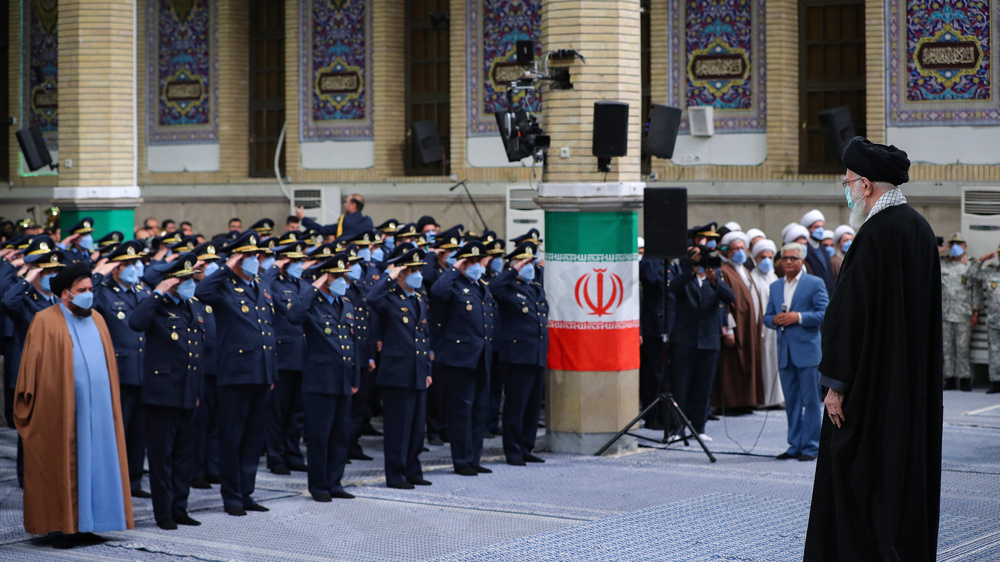



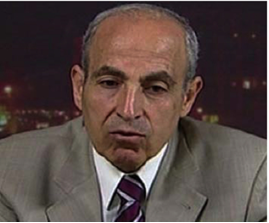




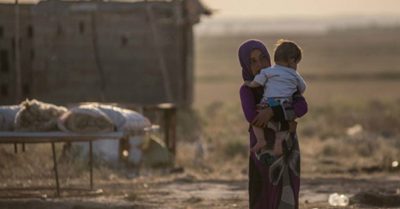
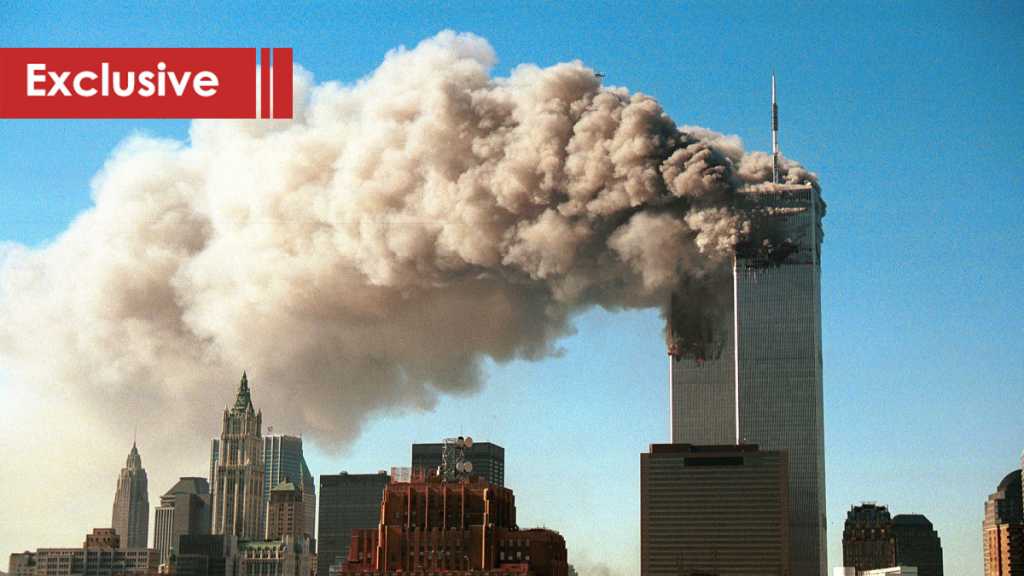


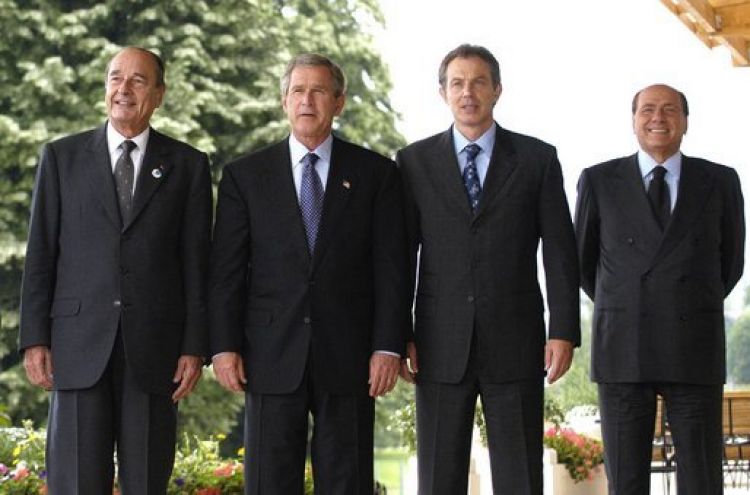




The Iraqi Hashd, Popular Mobilization Forces (PMF), said it is now forming its own ‘Air Force’ in order to respond to hostile air strikes.
The group’s deputy chief, Abu Mahdi al-Muhandes, said he had ordered to establish the air force directorate for the Hashd; naming Salah Mahdi Hantoush as its caretaker.
A senior US official said that Israel conducted “several strikes in recent days” in Iraq, including the July 19 attack north of Baghdad which targeted a base allegedly used by Iran’s Islamic Revolutionary Guard Corps “to transfer weapons to Syria”.
The claims come after Israeli Prime Minister Benjamin Netanyahu hinted at his country’s involvement in the latest attacks on ammunition depots in Iraq belonging to the Popular Mobilization Forces (PMF) composed of mostly Shia Muslim groups.
The Secretary of Iran’s Expediency Council (EC) Mohsen Rezaei said on Sunday that both Iraq and Syria would respond to the latest Israeli attacks on their soil.
“Measures that Israel and America are jointly implementing in Syria and Iraq are against the international rules. And Syrian and Iraqi defenders will soon respond to them,” Rezaie told ILNA on Sunday on the sideline of an event in Qazvin province.